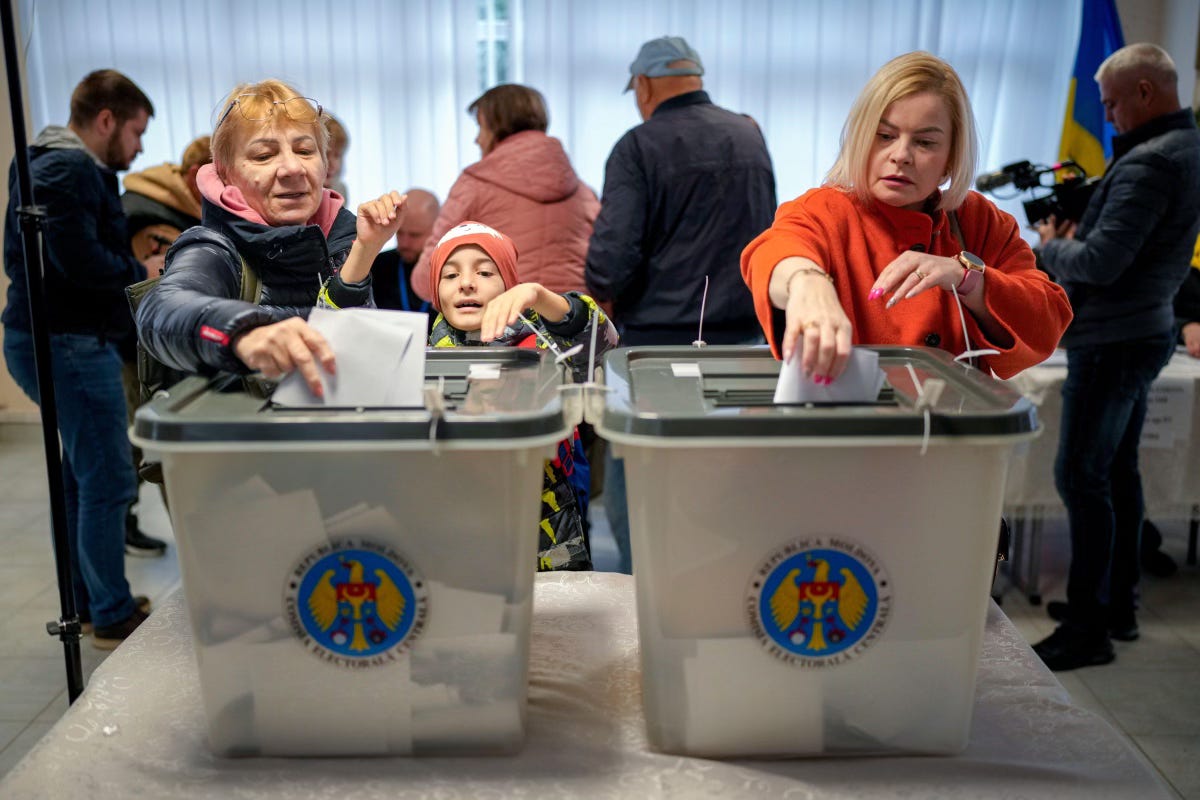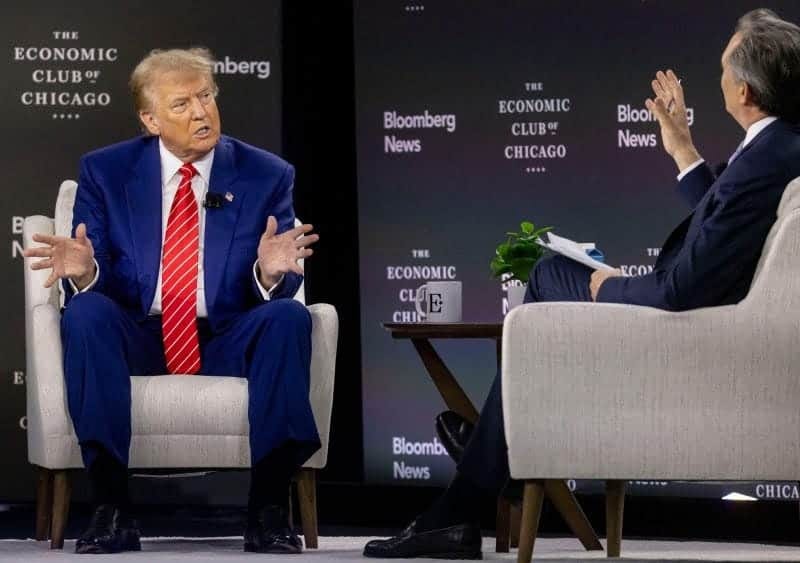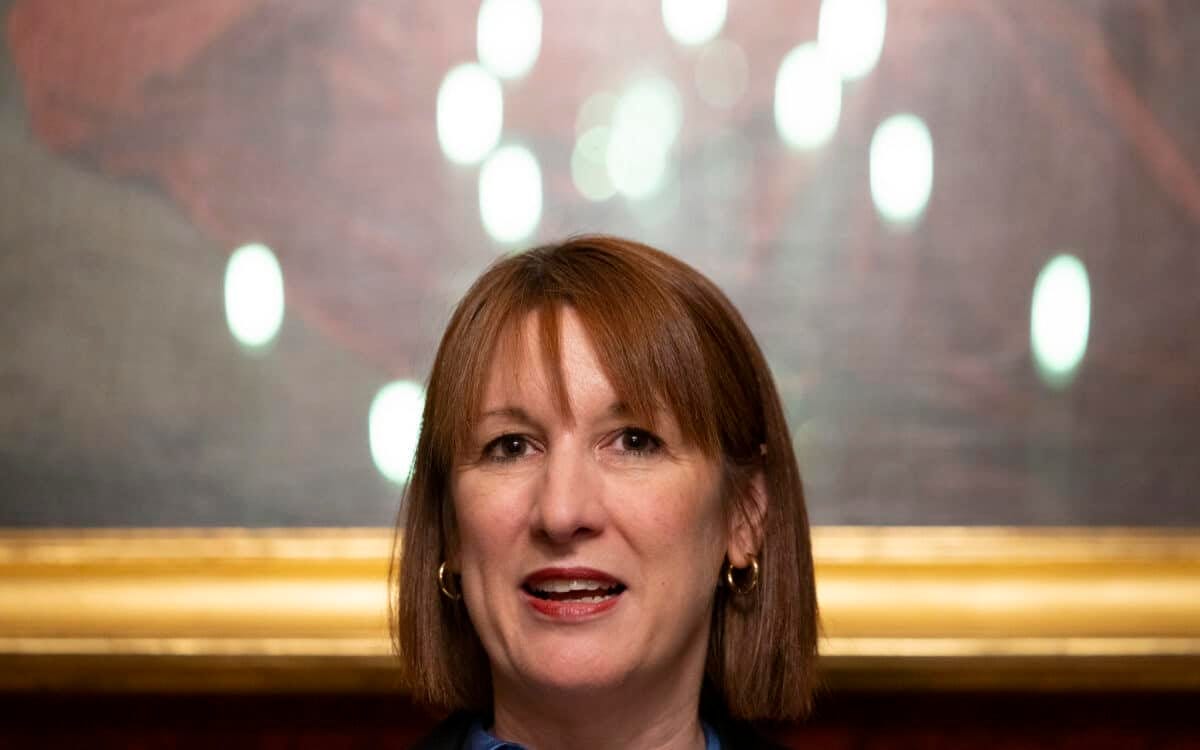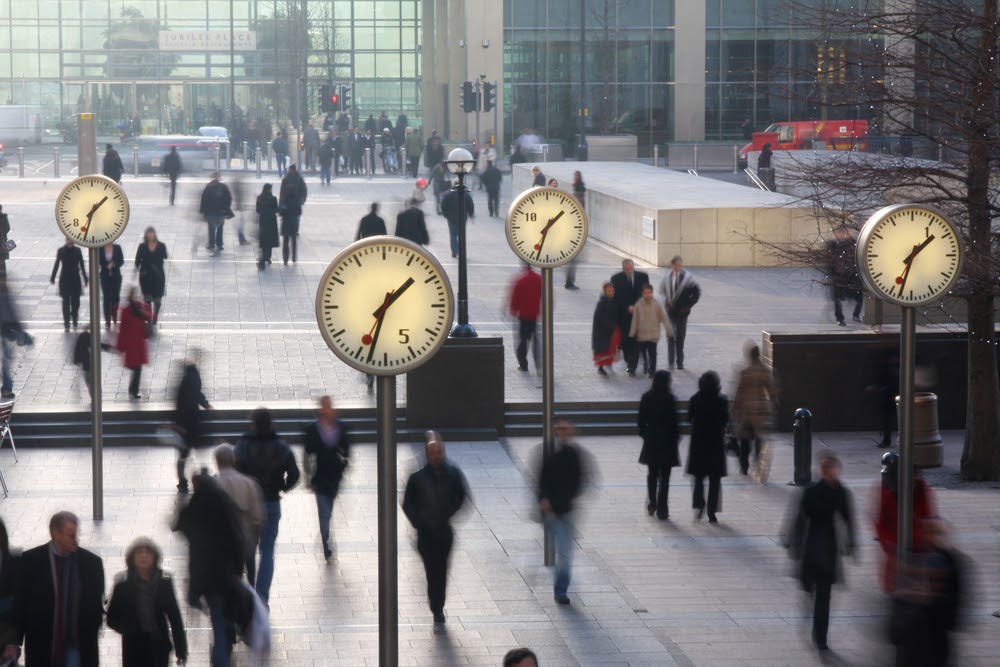Is Moldova's vote really a victory for the EU?
The election has exposed what a deeply divided nation Moldova is.
The West has narrowly won its tug-of-war with Russia over the future of Moldova, after citizens of the small eastern European nation voted to join the EU in a referendum so tight it has made Britain’s Brexit vote look like a landslide in comparison.
As Alexandra Luca wrote in Reaction last week, Sunday’s election - both a presidential election and a referendum on whether Moldova should enshrine its aspirations to join the EU in its constitution - was seen as a pivotal test of what kind of future Moldovans desired: one alongside Russia or a path of European integration?
The results have failed to provide a clear answer. Instead, they have exposed what a deeply divided nation Moldova is.
Last week, polls had predicted up to 65 per cent would vote in favour of joining the EU. In reality, the difference between the “yes” and “no” vote, on 50.3 and 49.7 per cent respectively, came down to just a few thousand votes.
What’s more, the “no” campaign had maintained a lead until the final hours of counting, when a last minute spike in votes from Moldovans living abroad, largely in EU member states or the US, tipped it in favour of enshrining European integration.
Another surprising outcome is that incumbent president Maia Sandu - a US-educated, anti-corruption reformer with a pro-European agenda - won the presidential vote by a much smaller margin than expected: 41 per cent versus the 26 per cent secured by her closest opponent, the Russia-friendly Alexandr Stoianoglo, who had been forecast to gain less than 10 per cent.
The presidential election will now go to a run-off vote in November, with Sandu facing a very real risk of losing if Russia-friendly candidates club together to block her.
Both the Kremlin and the Moldovan government stand accused of election meddling. Earlier this month, Moldova’s National Police accused Moscow of backing an attempt to bribe 130,000 voters. The alleged orchestrator of the operation, Moldovan oligarch Ilan Shor, has denied the allegations while Sandu inisted today she has "clear evidence" that votes were brought.
Moscow, meanwhile, has accused Chisinau of deliberately limiting how many Moldovans living in Russia could vote by printing an insufficient number of ballots there.
That accusations of election interference are abounding “risks further undermining trust in democratic institutions in Moldova”, warns Will Kingston-Cox, a Moldova expert for the International Team for the Study of Security. Trust that was “already perilously low due to endemic corruption”.
More generally, Kingston-Cox fears that this election is a “pyrrhic victory” for Sandu, that puts Moldova in a precarious position. To undertake such a major constitutional change based on a few thousand votes - largely from individuals no longer even living in Moldova - risks causing huge resentment and stoking tensions in the wider population.
In the increasingly separatist and pro-Russian area of Gagauzia for instance - where 95 per cent of the population voted “no” - this referendum will “provide the region with the justification to exercise its right to self-determination,” says Kingston-Cox.
Moldova was granted EU candidate status in 2022 and officially began EU accession negotiations in June.
This vote was supposed to make the process of joining the bloc irreversible. And technically it has. But it certainly has not been the ringing endorsement of European integration that Sandu's government had hoped for.
The West has won its tug-of-war with Russia, for now. Yet Moldova's future alongside Europe looks a little shakier than before.
Caitlin Allen
Deputy Editor
ON REACTION TODAY
Iain Martin
Why Trump, the Page Six president, is winning
Ian Stewart
The Chancellor's taxing Budget choices
Anthony Peters
If the banks aren’t exposed to the risks, then who is?
ALSO KNOW
Funding boost for council house building: Deputy Prime Minister and Housing Secretary, Angela Rayner, has reportedly secured almost a billion pounds in funding as part of a government initiative to double the number of council houses built each year. Investment in the Affordable Homes Programme is a central part of Labour’s plan to meet their target of building 1.5 million new homes over the next five years. The government is also considering reforming the "right-to-buy" rules which allow tenants to purchase their council houses at discounted rates.
Government initiates national NHS conversation: The Department of Health and Social Care has launched a "national NHS reform consultation" which invites members of the public to share their thoughts on how the national health service should be fixed in the lead up to the announcement of the government’s 10-year health plan next spring. Labour’s NHS strategy is reportedly centred on shifting the health service "from hospital to community", "from analogue to digital" and "from sickness to prevention’ with the government pursuing plans to make full medical records, test results and doctor’s letters available on the NHS England app as part of an effort to create a more efficient single patient record.
Harris and Trump tied: The latest polls from the key battleground states in the US show that Vice President Kamala Harris and Former President Donald Trump are neck-and-neck in seven of the crucial swing states that will determine the election in just over two weeks' time. According to ABC’s 538 polling averages, the race is "even" in Michigan, Pennsylvania, Wisconsin and Nevada while Trump is up a single point in North Carolina and two points in both Arizona and Georgia. Whilst Harris remains around two points ahead nationally, either candidate will need 270 votes in the Electoral College to win the contest on 5 November.
Hamas’ leadership contest: Hamas has announced it will elect a new leader in March 2025, while the group will be run by a five-member committee in the interim following the death of Yahya Sinwar at the hands of the IDF in Gaza last week. Meanwhile, Hamas’s sponsor, Iran, still awaits Israel’s response to Tehran’s rocket attack on 1 October with two leaked highly classified US intelligence documents, which appeared on pro-Iran internet sites last Friday, suggesting that Tel Aviv is preparing to strike the Islamic regime.
FIVE THINGS
Curated by the Reaction Team - Gabriel Lane
1. Trees and land absorbed almost no CO2 last year. Is nature’s carbon sink failing? asks Patrick Greenfield in The Guardian.
2. What Elon Musk really wants. Franklin Foer in The Atlantic.
3. What is the point of the Commonwealth? Jawad Iqbal in The Spectator.
4. Hua Hsu in the New Yorker on the decline of the working musician.
5. North Korea’s Marxist revival. Benjamin R. Young in Compact.






